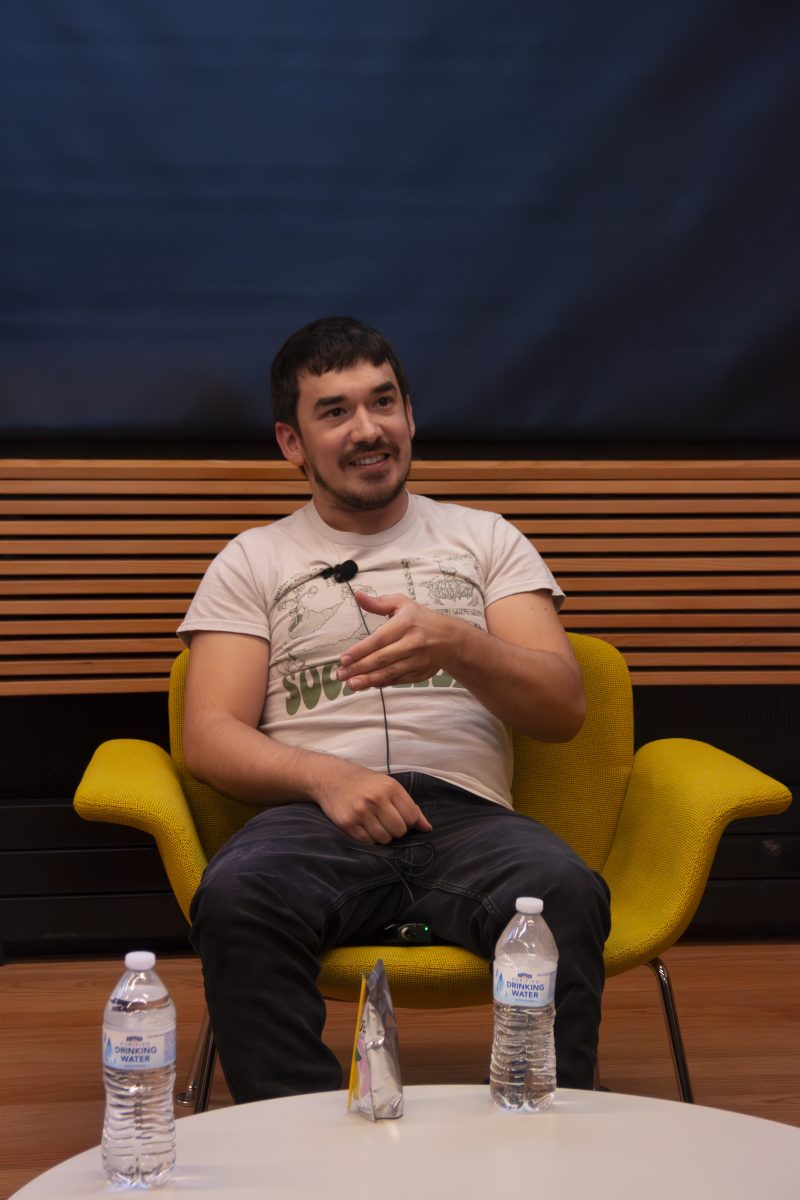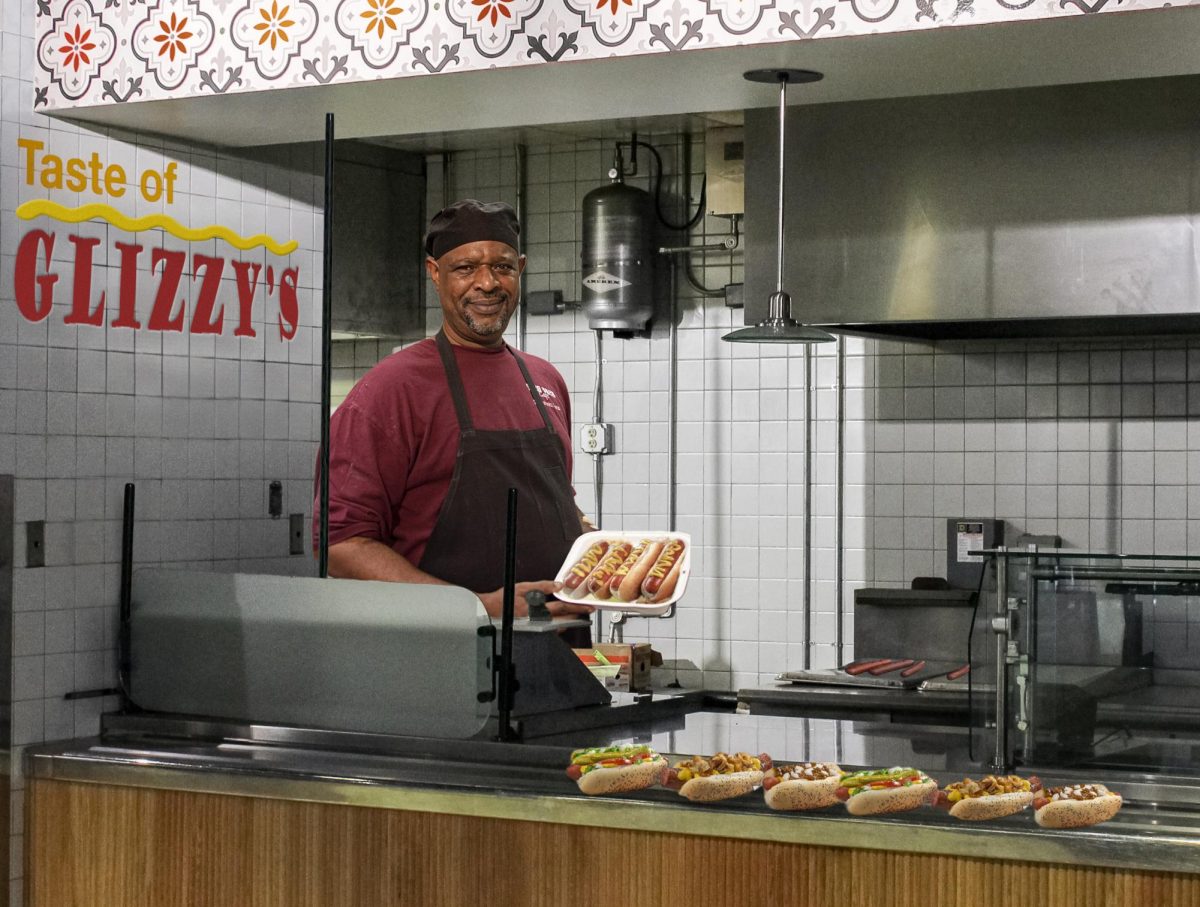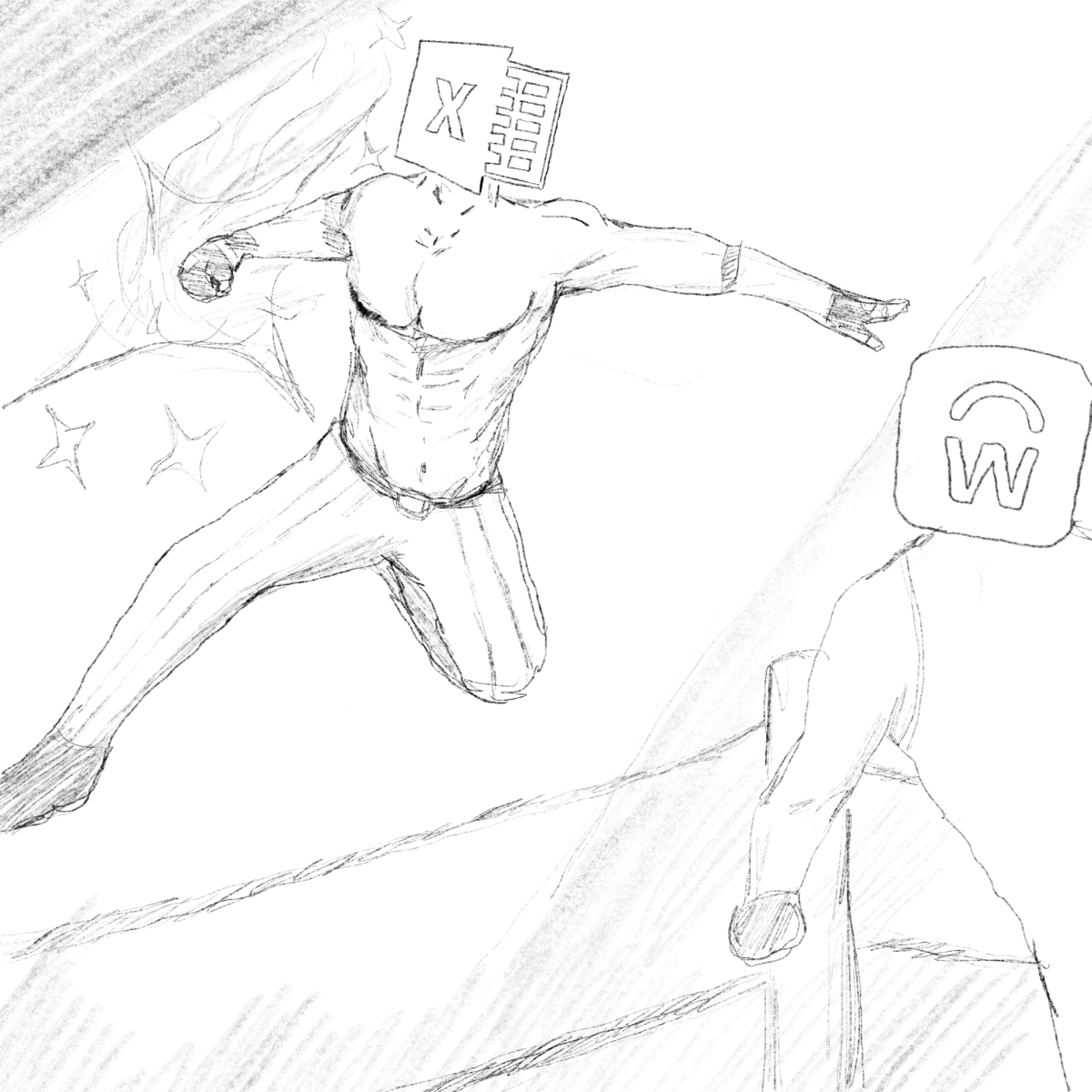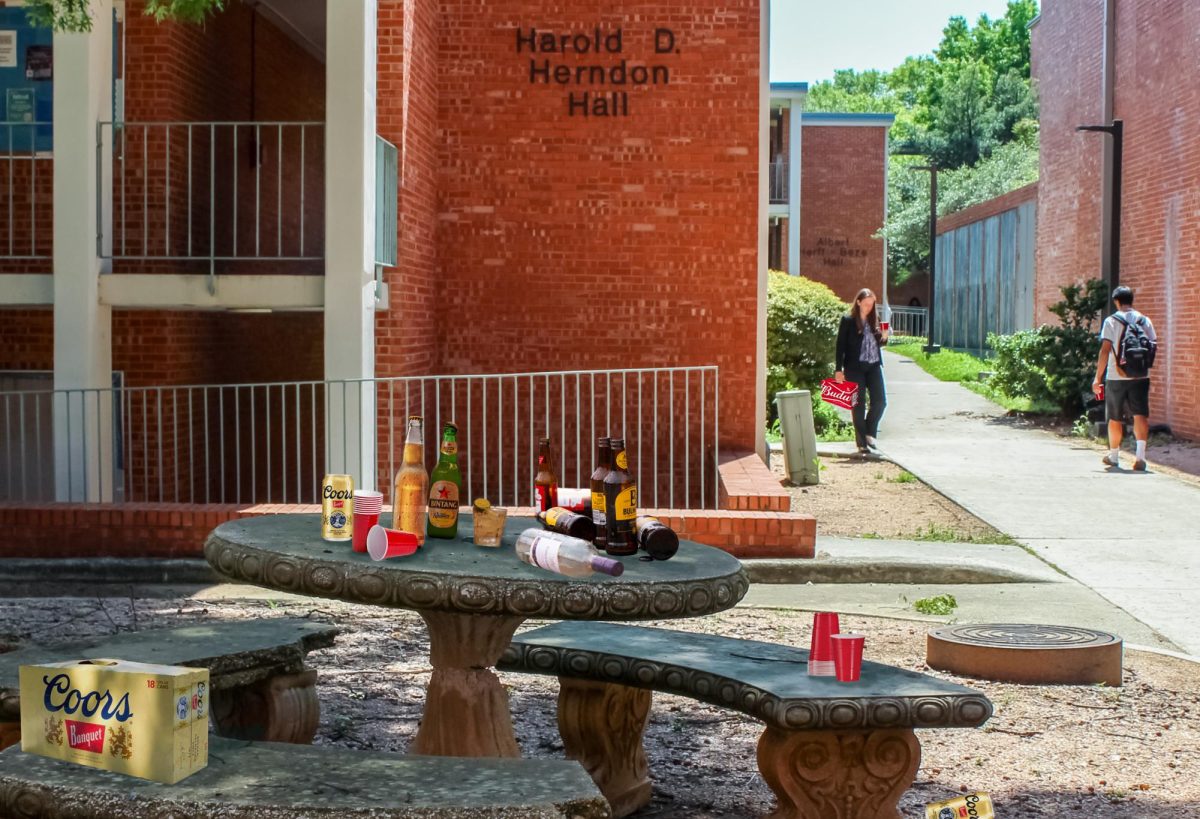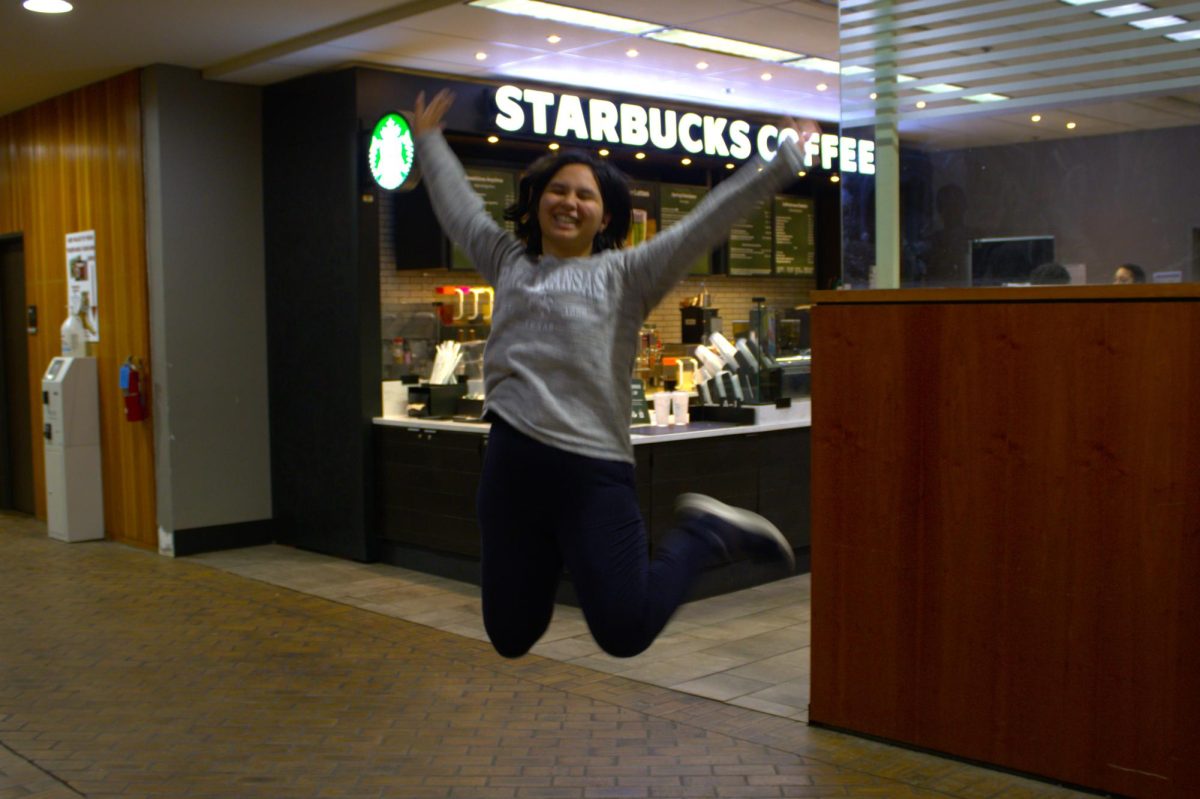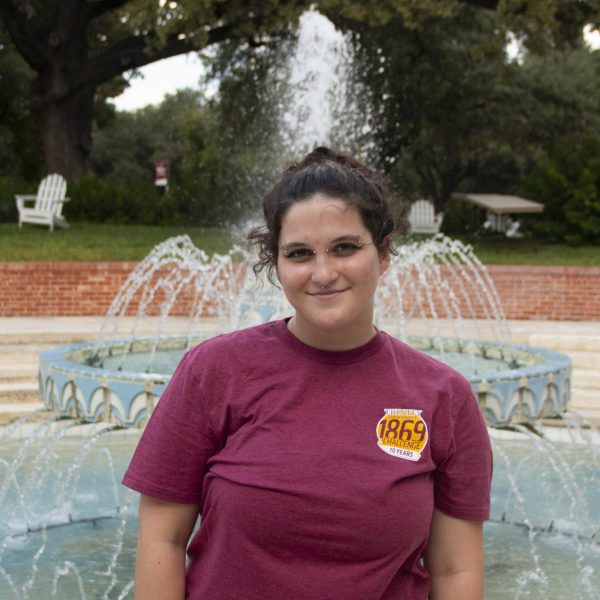On Wednesday Sept. 25, Trinity Diversity Connection (TDC) hosted a discussion in Dicke Hall about voting and the upcoming November elections.
The event featured Alex Birnel, advocacy director at M.O.V.E. Texas, and John Hermann, associate professor of political science at Trinity University. Throughout the discussion, both emphasized the importance of informed dialogue and civic engagement within the Trinity community.
During the event, Hermann and Birnel discussed the concept of minority rule in American democracy and the importance of voting beyond individual self-interest. The discussion also covered the challenges faced by the third parties and the need for strategic approaches to political organizing in the community.
The Republican side of the election conversation this year has been focused on election integrity. After the event, Birnel shared his belief that voter fraud will be exceedingly rare in this election, but the narrative of a porous system can shape people’s perceptions.
“There’s a bunch of research by a group called the Brennan Center that looks at this at a data level. You’re more likely to be struck by lightning [than] to have an incidence of fraud in the system,” Birnel said. “That does not mean that it doesn’t have the effect in people’s imaginations that it does, propagandistically people being suspicious, that the system is porous, it has these gaps and doesn’t verify people.”
Birnel also discussed that the upcoming election is not just important for U.S. citizens. Birnel stated that, due to the outsized global influence of the U.S., everyone, including international students, should remain attentive to U.S. and Texas politics.
“I oppose that over-concentration of power. I think it leads to a lot of unjust outcomes. So it’s a very internationalist sort of worldview,” Birnel said. “But even though we have differences because of culture, nation and language. We also have a lot of commonality related to power and experience with the great masses of people worldwide who have a lot in countries’ civil rights.”
Birnel and Hermann made note of how the upcoming election underscores the impact of political polarization on voter priorities and highlights the differing strategies candidates employ to mobilize their supporters. Hermann commented on the importance of Trinity students engaging in voting this year and the significance of political party affiliation on voting habits.
“I think it’s vital that Trinity students are educated on civics in the United States, because they can make the best choices as voters, if they are civic minded. To me, that would include two things that I think are really important,” Hermann said. “One, understanding the issues, and two, understanding where the candidates stand on the issues when it comes down to reality. Though, most people vote based on political party. Political party basically determines the outcome of elections.”
Regarding the issue of election integrity, Hermann also addressed the issues of gerrymandering and the considerable litigation that emerged from the 2020 election concerning allegations of election fraud.
“There’s a lot of litigation regarding redistricting plans, because redistricting tends to favor one party over another, so someone is not getting their fair vote. So those are the two major structural barriers that we have with elections,” Hermann said.
Beyza Yildirim, junior political science major and the dialogue committee chair for TDC, shared her thoughts on key issues raised during the event and outstanding points she thought were important.
“I think Alex Birnel … sort of touched on this issue of the fact that voting isn’t just a form of self expression. It’s also a form of collective action that we have to take,” Yildirim said. “Now, after the event, I’m more so thinking about how important it is to engage with communities and groups that are dedicated to collective action or dedicated to pushing certain policies through the electoral system. Also, the importance of local politics and voting during local elections, rather than just voting when there’s a presidential election.”

